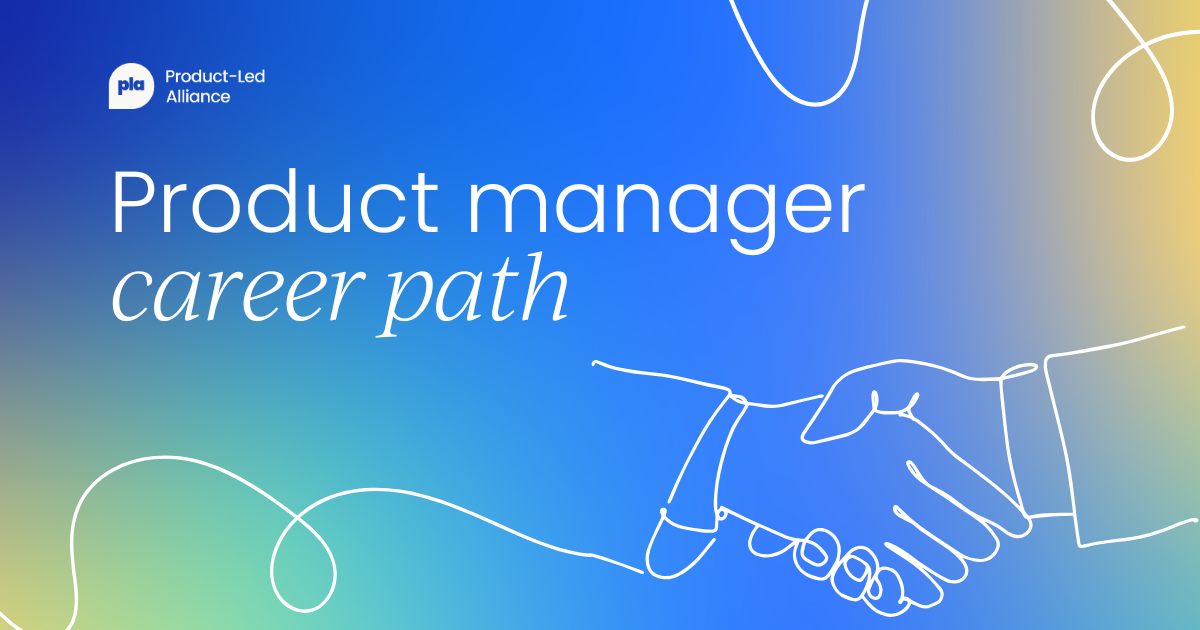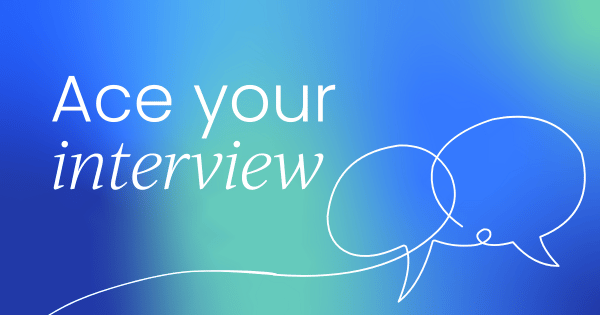Have you ever found yourself in the strange, ironic position of interviewing for a job you don’t even want?
It’s a bizarre but common reality for many product professionals. You're trying to land your dream role, but to get there, you feel like you have to jump through hoops for interviews that don't excite you.
Maybe you've even heard the cliché advice to "save the best for last." But let's be honest, it's incredibly difficult to show up with genuine enthusiasm for a company you're not invested in.
When they ask, "Why do you want to work here?" and your heart isn't in it, the pause says more than any rehearsed answer ever could.
I’ve been there. Earlier in my career, I realised that my job-seeking problem wasn't the market – it was my approach to the interview itself. A pivotal moment, a single conversation, helped me see that a shift in mindset could change everything.
That moment not only revealed the true purpose of an interview but also set me on a path that led me to immediately double my salary.
To take your career up a notch you need to stop just interviewing for jobs and start mastering the art of the interview.
Where it all started
The most significant turning point in my career didn't happen in a big meeting or with a groundbreaking product launch. It happened during a one-on-one session with a mentor.
He told me, "I want you to not break character for 24 minutes." I felt pretty confident, like I knew what I was doing. After all, I had been in product for years. I thought I knew how to do this.
Then, we started the feedback session. Like any great leader, his first question was, "How do you think it went?" I gave my answer, feeling pretty good about it.
What followed was a moment that has literally changed my life. He proceeded to just shred everything I had said. Every detail was scrutinised, from my answer to the very first question, "Tell me about what you’ve done?" to my body language and tone.
I've since learned that this kind of honest, unfiltered feedback is a gift.
He wasn't telling me I was a bad product manager. He was showing me that my interview performance wasn't reflecting my actual skill and experience. It was a wake-up call, a moment of profound clarity.
This one conversation kicked off a journey for me. It's just wild that one conversation could lead to such a massive leap in my career.
This experience taught me that the first step to interviewing better is to be open to feedback, no matter how hard it is to hear.

1. Research more than you think
Before that conversation, I thought I was doing my research. I’d look up the company on their website, maybe glance at their LinkedIn. But my mentor's feedback showed me I was only scratching the surface.
The question is, when you research, what are you researching?
Effective research is about more than just checking boxes. It’s about building a compelling narrative, a story of why you and that company are a perfect match.
Here's a breakdown of what that deeper research looks like:
Understand the problem
A product manager's job is to solve problems. Before you even walk into the room, you need to understand the problems the company is trying to solve.
- What are their biggest challenges right now?
- Are they trying to break into a new market?
- Is their product falling behind the competition?
Read their blog, listen to talks given by their team, and find out what’s on their mind.
Know the product (and the users)
Go beyond a quick look at their website.
Use the product. If it’s an app, download it. If it’s a B2B SaaS platform, ask for a demo or watch videos.
Use it like you're a real customer.
And when you do, be a product manager. Pay attention to the user experience. Where does it shine? Where could it be better?
This is crucial for showing your product intuition.
Research the people
Who is on the team you'd be joining? Who would you be reporting to? Look them up on LinkedIn. See what they’ve worked on, their career path, and if they’ve published any articles or spoken at conferences.
This isn't about being creepy; it's about finding common ground and demonstrating a genuine interest in working with them.
I learned to think of research as preparing to tell a story – your story and their story – and showing how they connect. It makes a world of difference.
It shows you're not just looking for any job; you’re looking for this job.

2. The mock interview: Your secret weapon
The next thing I learned was the power of the mock interview. For me, a mock interview was a bit like a sports practice. You wouldn't show up to a big game without practicing. Why would you show up to a high-stakes interview without practicing?
I’m not somebody who naturally enjoys practicing with strangers. I’m not working at all these big companies and can't see what they’re like on the first try.
But I was blown away by this idea of a mock interview. It’s a treasure trove of real-life examples and a chance to get honest feedback in a low-stakes environment.
I saw a group of people from all these big companies, and I thought, "This is my chance to practice." My mentor and I would role-play, and it was invaluable.
It wasn't about memorising answers. It was about building confidence and learning to articulate my thoughts under pressure.
Here's why mock interviews are non-negotiable for product professionals:
You can’t just wing it
Product interviews aren't about simple questions.
They're about hypothetical scenarios, product design challenges, and deep dives into your past experiences.
You need to practice talking through your thought process clearly and concisely.
You'll learn to think on your feet
A good mock interview partner will throw curveballs at you. They'll ask "why?" and "what if?" a dozen times.
This forces you to get comfortable with the uncertainty and shows you how to structure your answers in a way that demonstrates your problem-solving skills.
You get immediate feedback
The best part is the debrief.
A good partner will be brutally honest about what you did well and where you struggled.
Did you get too bogged down in the details? Did you miss the high-level strategy? This feedback is priceless.
A mock interview is an investment in your career. It prepares you to show up with confidence and clarity, no matter how tough the questions are.

3. Mastering the interview details
When you're interviewing for a product or tech role, it’s not so much that a certain question always has the same answer. It's about how you show up.
I once interviewed a candidate, and I think I noticed a subtle micro-expression in her throat. She swallowed a little bit as she was talking. I remember noticing her notice my expression, and she kept going.
She was blown away that I picked up on that tiny detail. We ended up hiring her.
Why? Because she was a product manager in that moment. She was present. She was reading the room, she was reading me, and she was adapting.
Product management is about people. It's about empathy, communication, and reading between the lines.
The interview is no different. Your authenticity, your micro-expressions, your ability to connect on a human level – these are just as important as your technical skills.
Don't just be an answer machine. Be a person they want to work with.
Show your passion, your curiosity, and your genuine interest in solving problems. A good interview is a conversation, not an interrogation.

4. Prepping for salary negotiations
The first offer I received after my life-changing feedback session was just a normal salary. It was what I had been offered before, maybe even a little less.
But I had a plan.
I was armed with data, market research, and a clear understanding of my value. I saw this as a pivotal moment, a chance to put everything I had learned into practice.
I had a conversation. I didn't just accept it. I used the data I had to ask, "What can you do in this area?" And that single conversation, that willingness to negotiate and advocate for myself, was what led to me immediately doubling my salary.
For me, salary negotiation isn't about being greedy. It’s a core part of being a product manager. It’s a negotiation. You're negotiating for the value you bring to a company. You have to understand your market value, be prepared to articulate it, and be confident in your worth.
This part of the process is a direct reflection of your ability to negotiate for your product's resources, advocate for its roadmap, and manage its success.
If you can’t advocate for yourself, how can you advocate for your product?
Conclusion
Looking back, it’s wild to think that my career journey could be so dramatically altered by a single conversation. That feedback session was the spark that lit the fire under me.
It showed me that accelerating my product career wasn't just about getting another job title. It was about mastering the skills of interviewing:
- Seeking and accepting hard feedback to identify your blind spots.
- Doing deep, strategic research that tells a compelling story.
- Practicing relentlessly with mock interviews to build confidence.
- Connecting on a human level to show your true value as a team member.
- Negotiating with confidence to secure the compensation you deserve.
These aren't just tips for getting a job; they're the core tenets of a successful product career.
The interview is a test of your product management skills long before you even get the job.
So, the next time you're preparing for an interview, don't just update your resume. See it as an opportunity to accelerate your career and show them exactly what you’re made of.




 Follow us on LinkedIn
Follow us on LinkedIn







